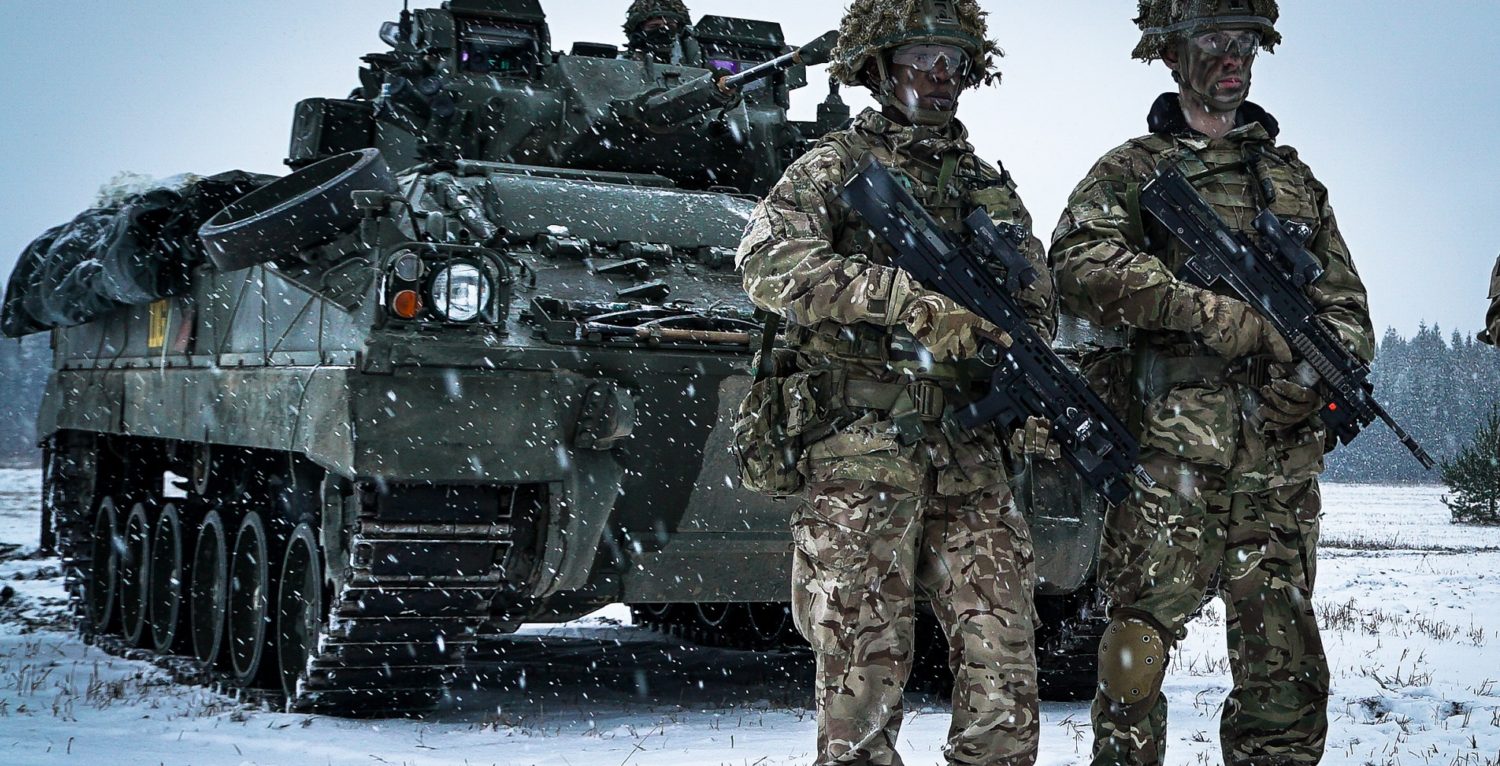Restless Pursuit
How scared should we be? Following the FEPS-Fabian Summer conference, Professor David Betz blogs on defence and security in the modern age.
War’s character, with what tools it is fought, by whom, and using what techniques and stratagems, is essentially protean—it is constantly changing just as society is changing. In the long history of humanity there are few advancements in civil knowledge that have not been turned to military use (quite often, indeed, the direction is the reverse—from the military to the civilian sphere). Nowadays it is widely held that our society is shifting in a practically epochal way from an industrial to a post-industrial model; it is said that we are in or at the cusp of an ‘information age’. It follows, then, that we are soon, or perhaps already are, faced with ‘information war’.
This basic thesis is causing a great consternation, it raises many questions and heightens anxiety, defence and security is an increasingly vital issue of the day. How scared should we be, though? The defence secretary Gavin Williamson reckons pretty scared, ‘the world is getting more dangerous’, he said earlier this week, implying that defence spending should rise perhaps a couple of hundred per cent to Cold War levels, a time when health, education, and defence spending were much nearer to parity than they are now. I think the parity idea is a good one—but politicians always want to spend more, why not try spending less? At any rate, I am pretty sure that he and I are scared about different things.
The thing that scares me the most is that Britain, a country which in the long view of history has good claim to the title of most strategically adept (and/or lucky) ever, is in a period now of extreme strategic ineptitude. We have been fighting dumb wars—wars which by the frank admission of their architects cannot be won in any sense that can be defined meaningfully as ‘victory’; for dumb reasons—frequently as props in domestic political theatre and rarely to achieve the things that politicians claim that they are about; and in dumb ways that grind down the men, morale, and materiel of our military forces.
Lord Melbourne once said “when I hear people saying that something must be done, I know that something foolish is about to happen.” Sad but true: since the end of the Cold War every one of Britain’s wars has begun from the premise something must be done, whether or not that thing is relevant, or sustainable, or ultimately actually useful. A very rich and powerful country that is very well insulated from reply in kind can possibly afford to live this way for a long while. Britain, though, is not that anymore; in fact, probably the key lesson to be drawn from the ‘9/11 era’ is that in these hyper-connected times no place is an island anymore.
Another threat frequently invoked in recent years is ‘Russia resurgent: back from the brink and bent on revenge’. Putin’s generals, it is supposed, have perfected a new ‘hybrid war’ doctrine—deliberately neither war nor not-war—that is confounding Britain’s NATO allies, some of our other friends, and also frenemies from the Baltics to Syria; the Kremlin, meanwhile, is using disinformation in a masterly way to decisively influence, inter alia, the Brexit referendum and the election of Donald Trump.
The word which best describes these points of view rhymes with ‘rowlocks’. For one thing ‘hybrid war’ as practiced by Russia in, say, Ukraine, is not new; there is virtually nothing in its purported methods –‘little green men’, exploitation of friendly foreign media, diplomatic obfuscation, subversion, use of criminal networks to undermine political order—which we cannot see, for example, in the Russo-Japanese War, which occurred over a hundred years ago.
For another, what the Russians call hybrid warfare they conceive as a long-term integrated societal level disinformation campaign aimed at wrecking a country by undermining its moral and political legitimacy—a gambit which they see as having been applied to them by the West. It may seem a lunatic idea to you, but to a lot of Russians it explains quite well some things that are, frankly, rather morally dubious, like the dogged Western support of the grotesquely anti-democratic Yeltsin regime, and the poisonous economic reform advice handed out by Western experts—in fact, most of the 1990s generally .
Fair or not, from the outside the Western world’s current victim pose looks just a tad hypocritical. Moreover, while there is to my mind quite obviously a very great public distrust in the political establishment, not by any means a uniquely British phenomenon, I do not think it deserves to be called a ‘crisis’. The big idea of liberal democracy is, after all, that governments are to be distrusted. If people are distrustful I think, good, at least we still have that going for us. It is, I think, too convenient of politicians to blame this or that ‘failing’ of policy to find traction with an incredulous public (bordering on the obstreperous) on external manipulation. It excuses their own failings to make good arguments; maybe it wards off the painful self-realisation of their lack of good ideas, a sort of Freudian displacement.
The idea falls down too in the face of the fact that the Russians are not particularly persuasive communicators or a strong country with a compelling value proposition anywhere beyond a few dictator desperados. When their ‘narratives’, nonetheless, seem inexplicably to resonate very well, they are pushing on an open gate. But was it Russia that decided to educate two generations of Britons into thinking that truth claims are intrinsically invalid, and that metanarrative, national myth, civilizational ethos were things of which all good people should be, respectively, sceptical, contemptuous, and ignorant? Was it Russia that exploded the deep reservoirs of social capital that once existed in an integrated national cultural community in favour of a disintegrated set of mutually indifferent-to-hostile communities?
Those are the things which make us weak and vulnerable. The pathetic rhetorical barbs of Russia, such as the dozen or so alternative explanations of how the Skripal’s came to suffer nerve agent poisoning, would bounce off a healthy society; a divided society, which is regularly professionally trolled by its own political establishment, on the other hand, is comparatively very weakly armoured.
Too often what is happening these days is that the real dangers that we face (and as often the supposed answers) are labelled with the magic prefix ‘cyber’. But if the problem, fundamentally, is about ideas, about what people think, why, and how that shapes their behaviour, including how they influence the thinking and behaviour of others, then calling it ‘cyberwar’ is like trying to squeeze a giant into dwarf’s clothing. It does not work—the attempt itself looks ridiculous, the ultimate of dumb.
And if the problem instead is the security of computer networks (a very important thing, to be sure) then we should call it that. It is a cliché of the field that the beginning of strategic wisdom is to put things in correct perspective, in relevant context, and not to pretend that things are other than they are, however much one might wish that to be.
As for perspective, I think the ‘cyber’ threat is diminishing, although it will never go away. It is diminishing in the way that every other putatively game changing technology, for example air power, is progressively integrated and normalised becoming just another element of combined arms. The cyber security industry wishes you to believe that the threat is increasing as we as a society wire up ever more people and things, a thesis which you should treat with a grain of salt not just because of the obvious conflict of interest, but because our experience with other highly connected systems is that resilience increases with density.
As for context, to be sure there are new ways that enemies can exert strategic power because of the digitisation of military forces, and more importantly the economy and civil life generally, but the old ways are not less puissant. To return to Russia, in my view, the greatest problem is that they are capable of building, and apparently prepared to sell to all comers, weapons such as hypersonic missiles that are capable of destroying our best formations and sinking our most expensive platforms, up to and including our new aircraft carriers. As it happens, I do not worry much about the clash of main forces between Russia and NATO in the Baltics, as is sometimes mooted. I do think, though, George Osborne’s statement a few years ago as Chancellor of the Exchequer defending the elimination of infantry battalions on account of them being replaced by cyberpower was risibly short-sighted.
And as for pretending we simply must stop. Stop pretending that semi-permanently intervening in other people’s civil wars is a good and useful thing. It used to be the great thing about winning militarily is that you got your army back intact; nowadays when you win it takes seventeen years and counting to get your army back— apparently we are about to send 400 troops back to Afghanistan. Stop pretending that the advent of ‘cyber’ is so discontinuous a change in strategic and military affairs as to warrant the wholesale reordering of our armed forces, let alone a justification for a programme of downsizing which looks a lot to me like defanging if not defenestration. Above all stop pretending that the inability difficulties of statesmen to turn strategy to the achievement of policy is anything but their own damn fault.

